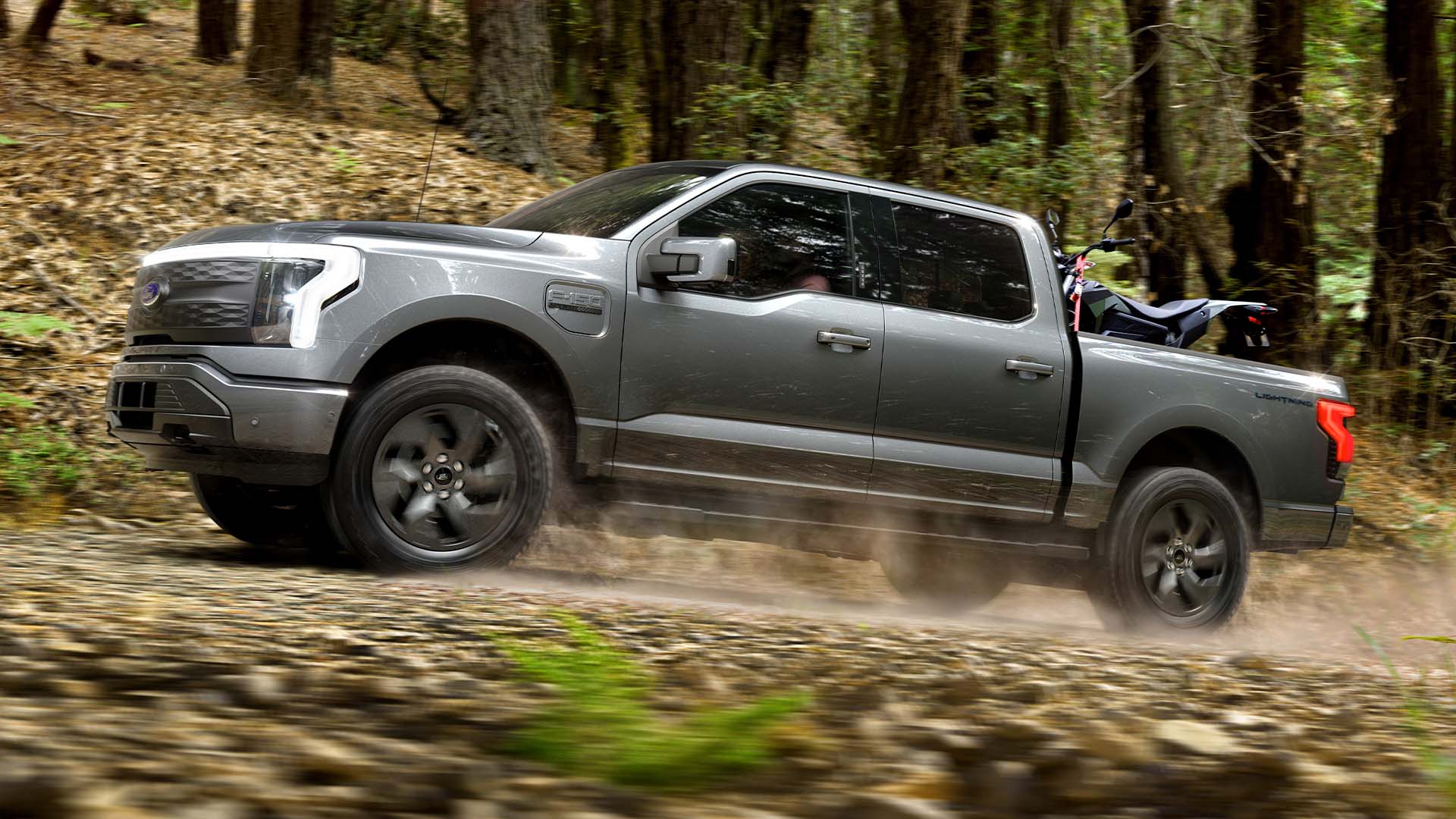

A lot of folks are under the impression that the Ford F-150 Lightning is virtually the same as the gas truck, just with a battery and electric motors. That’s definitely not the case, as the truck’s Chief Engineer Linda Zhang explained to The Drive at this week’s Los Angeles Auto Show. It’s got an independent rear suspension, for starters, and the frame had to be heavily reworked to accommodate for electrification.
Luckily, though, the Lightning will still fit accessories intended for the traditional half-ton F-Series. Obviously I’m not talking about exhaust systems or superchargers; instead, think of camper shells and bed racks, liners, and other pricey equipment that so many current F-150 owners already have. This was a tough task for the electric truck, Zhang admitted, but her team of Ford engineers was able to exactly replicate the bed’s interior and top rails. This may seem small but it allows for total transferability of gear, simplifying the process for those transitioning to the EV.


Zhang pointed out the Lightning’s unique bodywork, which not only provides some differentiating style but also aerodynamically benefits the pickup. These subtle tweaks include a hood that’s slightly shorter, and the bedsides are tucked in tight so that air can slide right across them and on behind the vehicle. This is a big part of making the Lightning as efficient as possible; believe it or not, a pickup isn’t the most inherently slippery shape.
With all this going on outside—and underneath—the Lightning, it would’ve been simpler to design a new truck box and tell people to deal with it. Then again, that’d go against Ford’s plan of making the Lightning accessible and pain-free for F-150 owners converting to battery power.
“We actually kept the same [bed] top for that exact reason,” Zhang told The Drive. “That’s what we viewed it as—to help people migrate into it, these kinds of touchpoints, we made it the same.”

The aftermarket provides a ton of support for work add-ons like ladder racks as well as recreational and livability upgrades, from rooftop tents to tonneau covers. It’d be a dealbreaker for plenty of people if they couldn’t remove those from their current trucks and install them on their new Lightning. Plus, it’d add months of development time for third parties to craft accessories made specifically for the Lightning, complicating the process and making it more expensive all the while.
What’s more, the Lightning offers a lot of flexibility for additions like these, due in large part to the number of electrical hookups throughout. Zhang told us there are something like 22 outlets from front to back in some specs, including 220-volt plug-ins, more traditional 110-volts, 12-volt, and USB ports. No matter what you’ve got that needs a charger, whether it be an air compressor, a refrigerator, or even your house, the F-150 Lightning’s available 9.6-kilowatt Pro Power Onboard mobile inverter can probably power it.
Got a tip or question for the author? Contact them directly: caleb@thedrive.com